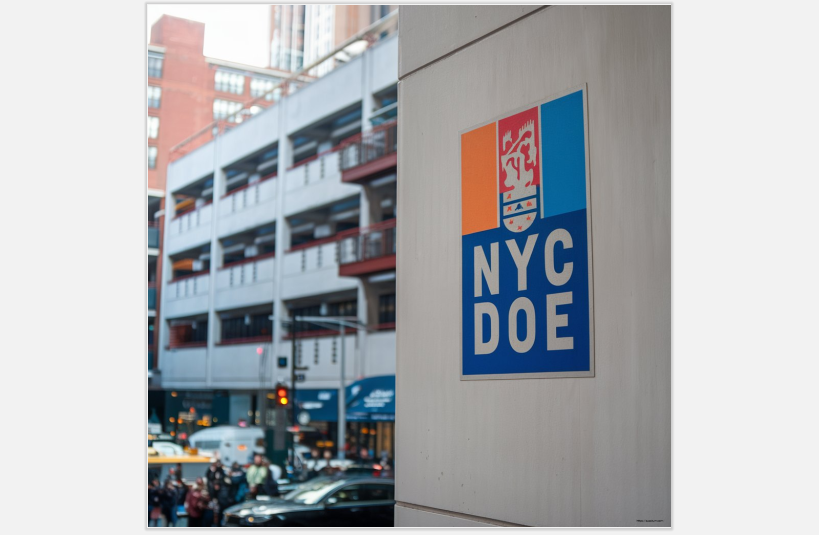The New York City Department of Education (NYC DOE) oversees the most extensive school system in the United States, serving over 1.1 million students across 1,800 schools. With this immense responsibility comes significant opportunities for innovation, as well as recurring challenges. From advancements in administrative tools to cybersecurity concerns and employee misconduct, NYC DOE continuously evolves its processes to support educators, staff, and students effectively.
This blog dives into the innovations and challenges relating to NYC DOE’s operations, covering key topics like the Payroll Portal, SESIS platform, Zoom integration, and more. By the end, you’ll better understand the ecosystem of tools and challenges that influence NYC education technology.
Table of Contents
NYC DOE Payroll Portal
The NYC DOE Payroll Portal is a vital resource for employees. It centralizes paycheck-related details, tax forms, deductions, and work schedules, streamlining administrative workload. The portal integrates platforms like Cybershift NYC DOE, which allows employees to view and manage work hours efficiently.
Key Features of the Payroll Portal
- Accessible anywhere with login credentials
- Detailed breakdowns of annual and monthly salary statements
- Integration with DOE NYC Cybershift for managing timekeeping
While the portal offers convenience, it occasionally faces glitches, such as login issues or lag times during payday. Upgrading its infrastructure to match NYC DOE’s growing operational needs is essential for seamless service.
NYC DOE Advance
Advance, the NYC DOE’s teacher evaluation system, is an essential tool for ensuring quality education. It assesses teacher performance through multiple measures, such as student learning outcomes and professional practices, promoting accountability and professional growth. Advance supports educators by offering data-driven insights for improvement.
Although Advance plays an innovative role in teacher evaluations, critics argue that the system can sometimes overly rely on test scores, limiting the holistic assessment of an educator’s skills.
Audience NYC DOE Login
Audience, an assessment tool used by NYC DOE, aids educators in evaluating student literacy and math skills. Through the Audience Login, teachers access detailed reports on individual and classroom performance, enabling targeted interventions.
However, the challenge lies in tech adoption. Teachers unfamiliar with the system may struggle to maximize its potential. Providing robust training and user-friendly updates can alleviate these concerns.
NYC DOE Zoom
The integration of Zoom into NYC DOE classrooms revolutionized remote learning during the pandemic. Zoom facilitated interactive virtual lessons, breakout rooms for group discussions, and digital engagement tools.
However, with significant adoption came notable hurdles, such as online security concerns like “Zoom bombing.” NYC DOE has since addressed these concerns by implementing stricter security measures and training teachers to use the platform securely.
SESIS NYC DOE
The Special Education Student Information System (SESIS) is a critical innovation for NYC DOE. SESIS allows educators and administrators to manage Individualized Education Programs (IEPs) for students with special needs.
Benefits of SESIS
- Centralized IEP management and documentation
- Real-time collaboration between teachers, specialists, and parents
- Enhanced compliance with legal requirements
Still, SESIS has faced criticism for being challenging to use and experiencing frequent technical issues. Regular upgrades and better usability testing could improve its effectiveness.
NYC DOE Employee Misused Grants
No discussion about challenges at NYC DOE would be complete without accountability for fund usage. Recent reports of employees mismanaging grants have drawn attention to vulnerabilities in financial oversight.
While these cases are isolated, they highlight the need for stricter review processes. NYC DOE must invest in advanced auditing systems to ensure public funds support student success.
NYC DOE Open Market
The Open Market System (OME) supports NYC DOE employees by enabling internal transfers to other schools or programs. This system offers teachers greater mobility within the district, ensuring career satisfaction and optimal allocation of talent.
However, some users find the platform outdated and unintuitive. Modernizing this tool can further enhance mobility for DOE employees.
Sub Central NYC DOE
Sub Central, NYC DOE’s substitute teacher management system, simplifies finding and placing substitutes when classroom teachers are unavailable. However, there are frequent complaints about the system’s inefficiency during high-need periods.
The Path Forward
To address these inefficiencies, NYC DOE could implement a more advanced version of Sub Central, which includes AI, to predict high-demand periods and fill gaps proactively.
NYC DOE Galaxy
The Galaxy system helps principals and administrators manage school budgets effectively. It’s a powerful tool to allocate resources, track spending, and plan for future needs.
Advances in transparency and usability have made Galaxy one of NYC DOE’s most impactful resources. Still, like other platforms, it requires periodic updates to keep up with evolving budgetary challenges.
NYC DOE SOLAS
The Safety and Online Learning Automated System (SOLAS) focuses on maintaining a safe online environment for NYC DOE students. It ensures adherence to digital safety protocols while delivering online learning resources.
SOLAS represents NYC DOE’s growing emphasis on protecting students in digital spaces — an increasingly important focus as technology permeates education.
Carter Case Office NYC DOE CSE
The Carter Case Office oversees services for students requiring private placements through the Committee on Special Education (CSE). This office plays a crucial role in supporting the most vulnerable learners in the NYC DOE system.
While the office provides essential services, improving communication and efficiency between CSE members and families remains a priority.
DOE NYC Email
Secure, centralized communication is vital for such an extensive system. The DOE NYC Email system ensures seamless communication between staff, teachers, and administrators.
To stay ahead, NYC DOE must continue to prioritize cybersecurity and scaling email capabilities to support increased communication needs.

